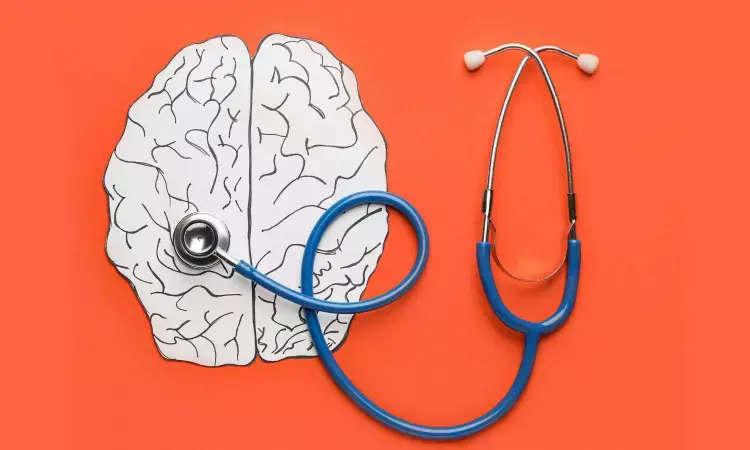- Home
- Medical news & Guidelines
- Anesthesiology
- Cardiology and CTVS
- Critical Care
- Dentistry
- Dermatology
- Diabetes and Endocrinology
- ENT
- Gastroenterology
- Medicine
- Nephrology
- Neurology
- Obstretics-Gynaecology
- Oncology
- Ophthalmology
- Orthopaedics
- Pediatrics-Neonatology
- Psychiatry
- Pulmonology
- Radiology
- Surgery
- Urology
- Laboratory Medicine
- Diet
- Nursing
- Paramedical
- Physiotherapy
- Health news
- Fact Check
- Bone Health Fact Check
- Brain Health Fact Check
- Cancer Related Fact Check
- Child Care Fact Check
- Dental and oral health fact check
- Diabetes and metabolic health fact check
- Diet and Nutrition Fact Check
- Eye and ENT Care Fact Check
- Fitness fact check
- Gut health fact check
- Heart health fact check
- Kidney health fact check
- Medical education fact check
- Men's health fact check
- Respiratory fact check
- Skin and hair care fact check
- Vaccine and Immunization fact check
- Women's health fact check
- AYUSH
- State News
- Andaman and Nicobar Islands
- Andhra Pradesh
- Arunachal Pradesh
- Assam
- Bihar
- Chandigarh
- Chattisgarh
- Dadra and Nagar Haveli
- Daman and Diu
- Delhi
- Goa
- Gujarat
- Haryana
- Himachal Pradesh
- Jammu & Kashmir
- Jharkhand
- Karnataka
- Kerala
- Ladakh
- Lakshadweep
- Madhya Pradesh
- Maharashtra
- Manipur
- Meghalaya
- Mizoram
- Nagaland
- Odisha
- Puducherry
- Punjab
- Rajasthan
- Sikkim
- Tamil Nadu
- Telangana
- Tripura
- Uttar Pradesh
- Uttrakhand
- West Bengal
- Medical Education
- Industry
Sleep apnea, lack of deep sleep linked to worse brain health

People who have sleep apnea and spend less time in deep sleep may be more likely to have brain biomarkers that have been linked to an increased risk of stroke, Alzheimer’s disease and cognitive decline, according to new research published in the May 10, 2023, online issue of Neurology®, the medical journal of the American Academy of Neurology. The study does not prove that these sleep disturbances cause the changes in the brain, or vice versa. It only shows an association.
The study looked at sleep factors and biomarkers of the health of the brain’s white matter. The biomarkers measure how well the brain’s white matter is preserved, which is important to connect different parts of the brain. One of the biomarkers, white matter hyperintensities, are tiny lesions visible on brain scans. White matter hyperintensities become more common with age or with uncontrolled high blood pressure. The other biomarker measures the integrity of the axons, which form the nerve fibers that connect nerve cells.
“These biomarkers are sensitive signs of early cerebrovascular disease,” said study author Diego Z. Carvalho, MD, MS, of the Mayo Clinic in Rochester, Minnesota, and a member of the American Academy of Neurology. “Finding that severe sleep apnea and a reduction in slow-wave sleep are associated with these biomarkers is important since there is no treatment for these changes in the brain, so we need to find ways to prevent them from happening or getting worse.”
The study involved 140 people with obstructive sleep apnea with an average age of 73 who had a brain scan and also an overnight study in a sleep lab. The participants did not have cognitive issues at the start of the study and had not developed dementia by the end of the study. A total of 34% had mild, 32% had moderate and 34% had severe sleep apnea.
The sleep study examined how long people spent in slow-wave sleep, which is also called non-REM stage 3, or deep sleep, and is considered one of the best markers of sleep quality. The researchers found that for every 10-point decrease in the percentage of slow-wave sleep, there was an increase in the amount of white matter hyperintensities similar to the effect of being 2.3 years older. The same decrease was also associated with reduced axonal integrity similar to the effect of being three years older.
People with severe sleep apnea had a higher volume of white matter hyperintensities than those with mild or moderate sleep apnea. They also had reduced axonal integrity in the brain.
The researchers accounted for age, sex and conditions that could affect risk of brain changes, such as high blood pressure and high cholesterol.
“More research is needed to determine whether sleep issues affect these brain biomarkers or vice versa,” Carvalho said. “We also need to look at whether strategies to improve sleep quality or treatment of sleep apnea can affect the trajectory of these biomarkers.”
The split-night design of the sleep study led to a limitation of this overall study. Participants’ sleep was observed and their sleep factors measured until they met criteria for the diagnosis of obstructive sleep apnea, mostly in the first two to three hours of sleep. Then they received a positive airway pressure machine for the rest of the night. So the sleep measurements may not be representative of a full night of sleep.
Dr Kamal Kant Kohli-MBBS, DTCD- a chest specialist with more than 30 years of practice and a flair for writing clinical articles, Dr Kamal Kant Kohli joined Medical Dialogues as a Chief Editor of Medical News. Besides writing articles, as an editor, he proofreads and verifies all the medical content published on Medical Dialogues including those coming from journals, studies,medical conferences,guidelines etc. Email: drkohli@medicaldialogues.in. Contact no. 011-43720751


